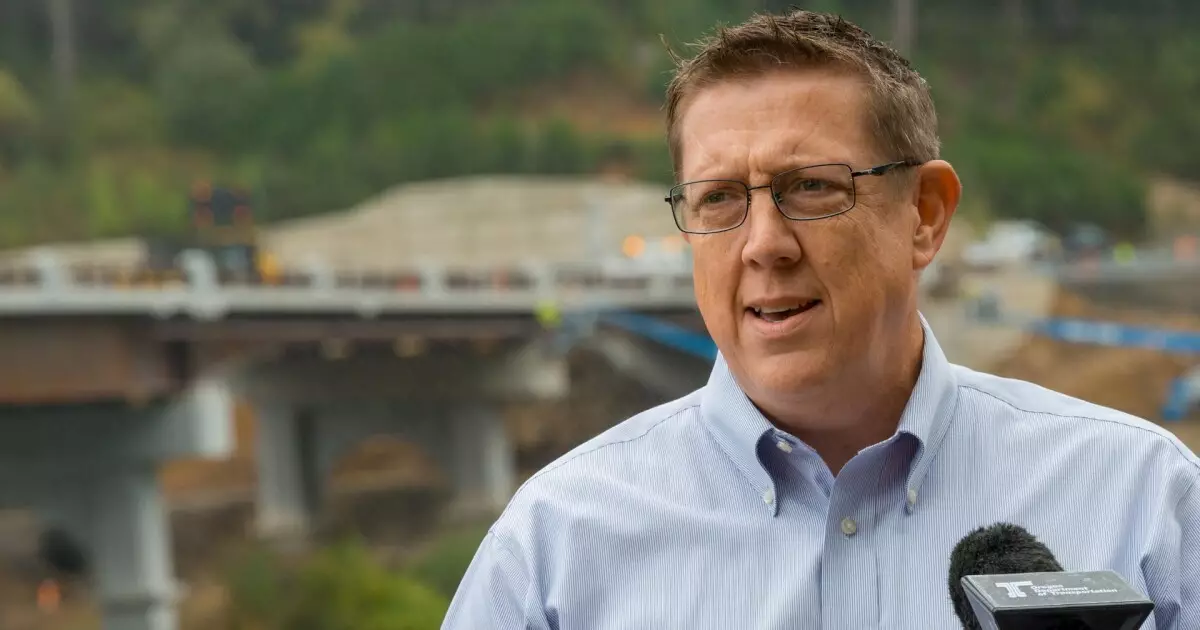Oregon’s recent legislative session has painfully demonstrated the high human and infrastructural costs of political inaction. As lawmakers failed to pass a crucial transportation package before adjourning, hundreds of dedicated transportation workers now face imminent layoffs. These layoffs are not mere administrative inconveniences; they threaten to destabilize countless communities, cripple economic growth, and erode public trust in the state’s commitment to progress. The failure to reach consensus underscores a broader failure of political leadership—a hesitation rooted in partisan deadlock that prioritizes ideology over urgent practical needs.
The repercussions of this deadlock are real and immediate. Oregon Department of Transportation (ODOT) employees, who have dedicated their careers to maintaining the state’s vital infrastructure, are being handed notices of termination, with some facing unemployment as soon as next week. This is not a victimless scenario; it reflects a failure of governance that neglects the foundational principles of responsibility and foresight. The shutdown of essential services, from road maintenance to safety inspections, will inevitably jeopardize public safety and economic stability, leaving average citizens and local businesses to bear the burden of political indecisiveness.
Structural Deficiencies and Budgetary Constraints
For years, OREGON’S transportation infrastructure has been teetering on the brink—a consequence of structural budget shortfalls compounded by stagnant revenue streams and restrictive statutes. Fuel taxes, once a reliable source of funding, have declined in real value due to inflation and shifting transportation trends. Meanwhile, legislative restrictions prevent flexible use of existing funds, constraining the agency’s ability to adapt to urgent needs. The recent $300 million shortfall underscores the systemic nature of the problem, not just a temporary hiccup.
Leaders at ODOT warned repeatedly about the impending crisis, advocating for a comprehensive funding solution that would provide stability. Yet, legislative efforts like House Bill 2025 failed, primarily because partisan divisions prevented the necessary supermajority vote—highlighting that political gridlock continues to overshadow pragmatic solutions. The inability to pass a $14.6 billion tax and fee increase over a decade reveals the widening gulf between fiscal necessity and ideological resistance, leaving essential services vulnerable.
The failure to act reflects a fundamental misjudgment: policymakers seem more invested in ideological battles than in safeguarding the infrastructure backbone that supports Oregon’s economic vitality and residents’ quality of life. Instead of addressing the structural deficits, lawmakers have allowed these problems to fester, resulting in a crisis that will now cost jobs and strain the state’s limited resources even further.
The Cost of Political Stagnation
The human element of this crisis cannot be overstated. While political leaders engage in behind-the-scenes negotiations and public hand-wringing, hundreds of transportation workers, many with years of dedication, face losing their livelihoods. The personal toll—fear, uncertainty, and financial instability—is just the tip of the iceberg. These layoffs will inevitably ripple through local economies, impacting small businesses that rely on reliable transportation routes and the communities that depend on well-maintained roads and bridges.
Moreover, the implications extend well beyond individual employees. A crippled transportation infrastructure hampers economic growth, deters investment, and compromises public safety. Potholes, delayed maintenance, and reduced oversight increase the likelihood of accidents and infrastructure failure. This situation is a textbook example of how political procrastination translates directly into tangible harm, undermining the very fabric of Oregon’s future development.
Governor Tina Kotek’s indication of the possibility of a special session suggests some recognition of urgency, but without clear leadership and decisive action, these promises remain hollow. The longer the legislature remains paralyzed, the deeper the damage becomes. State funds are finite, and without a dedicated plan, the cycle of decline promises to intensify, making recovery more arduous and expensive.
A Call for Pragmatism and Leadership
In a climate of political polarization, Oregon’s current crisis highlights the need for pragmatic, centered leadership—policies grounded in reality rather than ideological purity. The state cannot afford to let idealism stand in the way of essential infrastructure investments. Transportation funding ought not to become a partisan battleground but a bipartisan priority that ensures safety, economic stability, and the well-being of residents.
The failure to pass a comprehensive transportation package exposes a fundamental flaw in Oregon’s political process: an obsession with inaction, prioritizing short-term political gains over long-term practical solutions. The consequences are not theoretical—they are painfully visible in the form of thousands of workers facing layoffs, deteriorating roads, and an increasingly fragile infrastructure system.
Ultimately, this crisis demands a re-evaluation of priorities. Leaders must recognize that without adequate and flexible funding, Oregon’s future remains at risk. The question is whether policymakers will learn from this avoidable crisis, or whether they will succumb again to divisive politics, leaving the state to pick up the pieces after avoidable damage has been done. Only through pragmatic leadership and a willingness to compromise can Oregon hope to repair not just its infrastructure, but also its lost sense of collective purpose.

